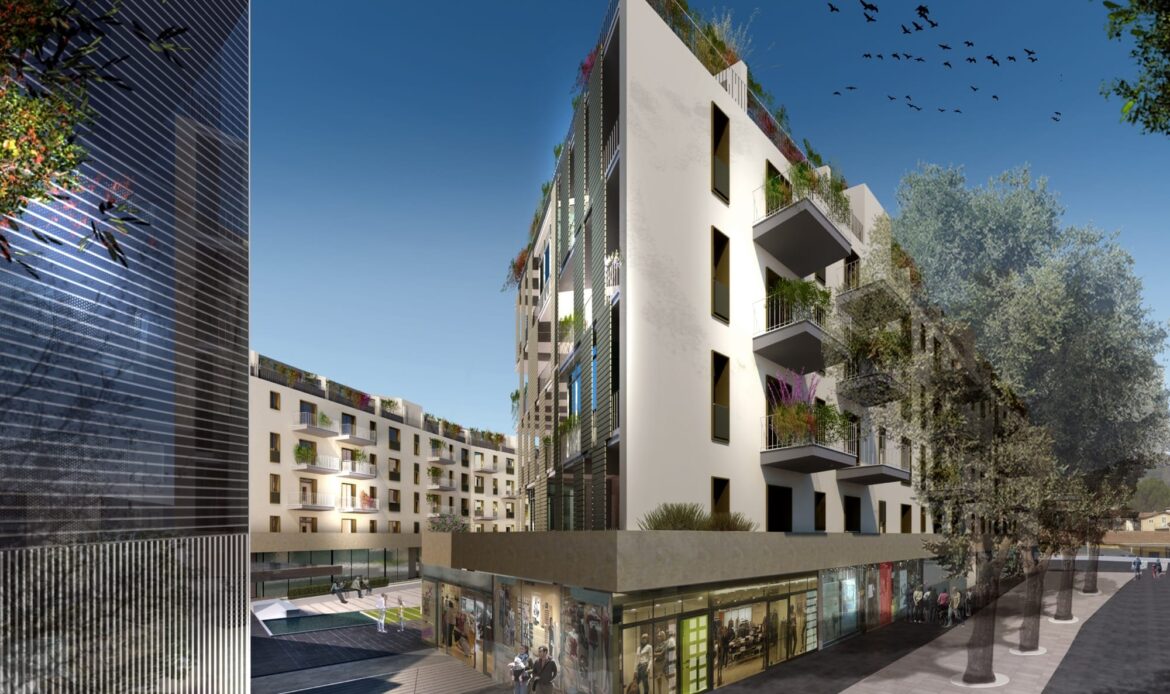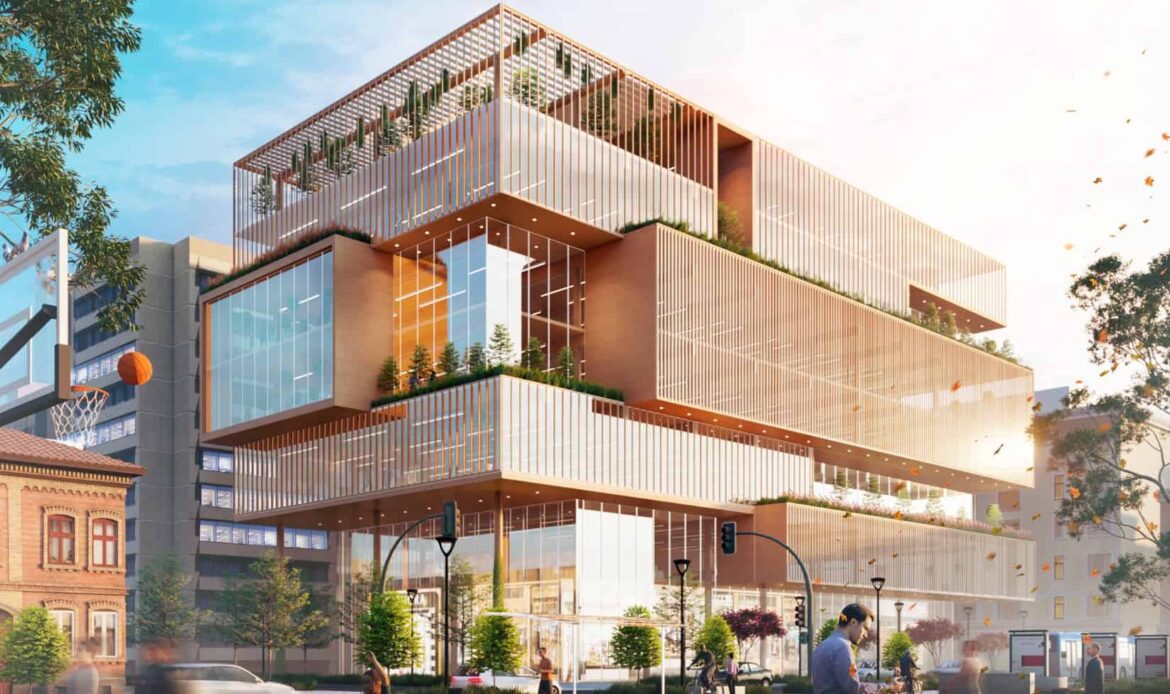

Mixed-use residential projects are increasingly popular in Nigeria’s urban development landscape due to their ability to blend residential, commercial, and recreational spaces into one cohesive environment. These projects offer numerous benefits, including enhanced convenience, reduced travel time, and vibrant community spaces. However, the development of mixed-use residential projects in Nigeria involves navigating a complex web of legal and regulatory considerations. This article explores the key legal considerations for mixed-use residential projects in Nigeria, providing insights into regulatory requirements, compliance issues, and best practices for successful project execution.
The Importance of Mixed-Use Residential Projects
1. Urban Development and Sustainability
– Overview:
Mixed-use developments support sustainable urban growth by integrating various land uses within a single project, reducing the need for extensive transportation and promoting efficient land use.
– Impact:
These projects contribute to vibrant, walkable neighborhoods that foster community interaction and support local businesses.
2. Economic Benefits
– Overview:
By combining residential, commercial, and recreational spaces, mixed-use projects can enhance property values and stimulate local economies.
– Impact:
Such developments attract investment, create jobs, and provide diverse amenities that enhance the quality of life for residents.
Key Legal Considerations for Mixed-Use Residential Projects in Nigeria
1. Regulatory Framework and Compliance
– Overview:
Navigating Nigeria’s regulatory framework is essential for ensuring compliance with legal requirements and successful project execution.
– Key Regulations:
- Urban and Regional Planning Act: Governs land use planning and zoning regulations, providing guidelines for the development of mixed-use projects.
- Land Use Act: Regulates land ownership, acquisition, and use, impacting how land can be utilized for mixed-use developments.
2. Land Acquisition and Property Rights
– Overview:
Acquiring land and securing property rights are fundamental steps in the development process, requiring adherence to legal procedures and documentation.
– Legal Considerations:
- Land Title and Ownership: Ensure clear title and ownership of the land to avoid disputes and legal complications.
- Land Use Approval: Obtain necessary approvals for land use changes from relevant authorities, including zoning and land conversion permits.
3. Zoning and Land Use Regulations
– Overview:
Zoning and land use regulations dictate how land can be used and developed, impacting the design and function of mixed-use projects.
– Legal Considerations:
- Zoning Laws: Comply with zoning laws that specify allowable land uses, building heights, and densities.
4. Environmental Impact Assessment (EIA)
– Overview: Conducting an Environmental Impact Assessment (EIA) is crucial for evaluating and mitigating the environmental impacts of mixed-use residential projects.
– Legal Considerations:
- EIA Regulations: Adhere to regulations requiring EIA for large-scale developments to assess potential environmental impacts, such as pollution, habitat disruption, and resource depletion.
- Mitigation Measures: Develop and implement mitigation measures to address identified environmental impacts and comply with environmental standards.
5. Building Codes and Construction Standards
– Overview:
Adherence to building codes and construction standards ensures safety, quality, and compliance with legal requirements.
– Legal Considerations:
- Building Code Compliance: Follow national and local building codes that outline construction standards, safety regulations, and quality assurance measures.
- Approval Processes: Obtain building permits and approvals from relevant authorities before commencing construction.
6. Health and Safety Regulations
– Overview:
Ensuring health and safety regulations are met is critical for protecting residents, workers, and the public during construction and operation.
– Legal Considerations:
- Occupational Health and Safety Act: Comply with regulations that ensure the safety and well-being of construction workers, including safety training and protective measures.
- Public Safety: Implement measures to protect residents and the public from construction-related hazards, such as noise, dust, and heavy machinery.
7. Compliance with Property Laws
– Overview:
Compliance with property laws is essential for managing ownership, leasing, and operational aspects of mixed-use residential projects.
– Legal Considerations:
- Property Management: Develop clear property management agreements and lease terms for commercial and residential components
- Dispute Resolution: Establish mechanisms for resolving disputes between residential and commercial tenants, and address issues related to property maintenance and service delivery.
8. Public-Private Partnerships (PPPs)
– Overview:
Public-private partnerships (PPPs) can facilitate the development of mixed-use projects by combining public resources with private sector expertise and investment.
– Legal Considerations:
- PPP Agreements: Negotiate and draft PPP agreements that outline the roles, responsibilities, and financial arrangements between public and private stakeholders.
- Regulatory Compliance: Ensure that PPP projects comply with relevant regulations and receive necessary approvals from government agencies.
Best Practices for Managing Legal Considerations
1. Engage Legal and Regulatory Experts
– Overview:
Collaborate with legal and regulatory experts to navigate complex legal requirements and ensure compliance throughout the project lifecycle.
– Implementation:
Work with legal professionals who specialize in property law, urban planning, and environmental regulations to address legal issues effectively.
2. Conduct Thorough Due Diligence
– Overview:
Perform comprehensive due diligence to identify and address potential legal and regulatory issues before initiating the project.
– Implementation:
Review land titles, zoning regulations, environmental assessments, and building codes to ensure all legal requirements are met.
3. Foster Collaboration with Authorities
– Overview:
Engage with local authorities and regulatory bodies to streamline the approval process and address any concerns or requirements.
– Implementation:
Maintain open communication with relevant authorities, attend public hearings, and seek feedback to ensure compliance and address any issues promptly.
4. Develop Comprehensive Project Plans
– Overview:
Create detailed project plans that address legal, regulatory, and operational aspects of the development.
– Implementation:
Develop clear project timelines, budgets, and compliance strategies to guide the development process and mitigate potential risks.
5. Monitor and Adapt to Regulatory Changes
– Overview:
Stay informed about changes in regulations and standards that may impact mixed-use residential projects.
– Implementation:
Monitor regulatory updates, participate in industry forums, and adapt project plans to comply with new legal requirements.
Case Studies: Successful Mixed-Use Residential Projects in Nigeria
1. The Eko Atlantic City Project
– Overview:
The Eko Atlantic City Project is a large-scale mixed-use development in Lagos that integrates residential, commercial, and recreational spaces.
– Outcome:
The project demonstrates successful navigation of regulatory requirements, including land acquisition, zoning approvals, and environmental impact assessments.
2. The Landmark Village Development
– Overview:
Landmark Village is a mixed-use development in Lagos that combines residential, office, and retail spaces within a single complex.
– Outcome:
The development showcases effective integration of zoning regulations, building codes, and property management practices.
Conclusion
Addressing legal considerations for mixed-use residential projects in Nigeria is essential for ensuring successful development and long-term viability. By understanding and navigating the regulatory framework, complying with property laws, and implementing best practices, stakeholders can achieve effective project execution and contribute to sustainable urban development.
The complexities of mixed-use developments require careful planning, collaboration with experts, and adherence to legal requirements. Embracing these considerations will not only enhance the success of individual projects but also contribute to the overall growth and sustainability of Nigeria’s urban landscape. As Nigeria continues to evolve and expand its infrastructure, addressing legal considerations effectively will play a crucial role in shaping vibrant, resilient, and thriving communities.
· Mixed-Use Residential Projects
· Urban Development Nigeria
· Regulatory Compliance
· Land Acquisition Nigeria
· Property Rights Nigeria
· Zoning Regulations
· Environmental Impact Assessment (EIA)
· Building Codes Nigeria
· Health and Safety Regulations
· Public-Private Partnerships (PPPs)
· Property Management
· Sustainable Urban Growth
Contact Us
Chaman Law Firm today. Our offices are conveniently located in Lagos, FCT Abuja, Ogun State, and the UK. We are readily available to assist you with your legal needs. Whether you require consultation, representation, or ongoing legal support, Chaman Law Firm is your trusted partner.
Call us at 08065553671 or email us at info@chamanlawfirm.com to schedule a consultation.

